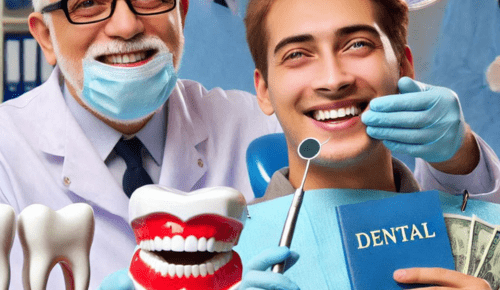Dental care is an essential part of family life and evolves as we age. Babies begin with teething, which can be a challenging time. Young children need guidance on brushing and flossing. Teenagers often face braces or wisdom teeth issues. Adults may require more involved treatments like crowns or root canals. This journey doesn’t end there. Seniors often need specialized care, focusing on preserving remaining teeth and gums. An endodontist in San Jose can provide expert care for complex procedures, ensuring every family member receives the attention they need. Understanding these stages helps in planning routine visits and addressing specific concerns. Good dental habits formed early can prevent many issues later on. Approaching each stage with knowledge makes the path smoother. Regular check-ups and cleanings, paired with a healthy diet, support dental health. With the right care, every family member can enjoy a lifetime of healthy smiles.
Early Years: Teething and First Teeth
The journey begins with the first tooth. Babies typically start teething around six months. This can lead to discomfort and irritability. Using a clean, damp cloth to wipe the gums can help soothe them. As the first teeth appear, it’s time to start brushing. A soft-bristled toothbrush with water is all that’s needed at first. When the child turns two, introduce a pea-sized amount of fluoride toothpaste. Regular dental visits should start by their first birthday. These early check-ups help monitor the development of teeth and jaw.
Childhood: Building Healthy Habits
As children grow, so does their independence. Encouraging them to brush twice daily and floss regularly is crucial. Supervision ensures proper technique and helps build lifelong habits. Sealants and fluoride treatments at the dentist’s office can offer additional protection against cavities. According to the Centers for Disease Control and Prevention, dental sealants prevent 80% of cavities in the back teeth, where most cavities occur.
Teen Years: Orthodontics and Wisdom Teeth
Teenage years often bring the need for braces or other orthodontic treatments. These not only improve the appearance of teeth but also their function. Proper alignment aids in effective cleaning and reduces the risk of tooth decay. This is also the age when wisdom teeth may start to emerge. Regular monitoring helps assess whether removal is necessary to prevent complications. Teens should continue regular dental visits and maintain good oral hygiene practices.
Adulthood: Maintaining Dental Health
For adults, maintaining dental health becomes a priority. Regular check-ups and cleanings every six months are essential. Adults may face issues like gum disease, tooth decay, and enamel erosion. Treatments like fillings, crowns, or root canals may become necessary. It’s important to address these promptly to prevent more significant problems. Lifestyle choices, such as diet and smoking, play a significant role in oral health. Limiting sugar and quitting smoking can have positive impacts.
Senior Years: Special Considerations
Seniors often face unique dental challenges. Tooth loss, dry mouth, and gum disease are common. Dentures or implants may become necessary to maintain function and appearance. Regular dental visits remain crucial to monitor changes and manage any emerging issues. A focus on preserving existing teeth and addressing any discomfort promptly can greatly enhance the quality of life. The National Institute of Dental and Craniofacial Research provides detailed information on managing tooth loss and other common issues among older adults.
Comparison Table: Dental Care by Age Group
| Age Group | Common Issues | Recommended Practices |
| Babies (0-2 years) | Teething | Gum cleaning, first dental visit |
| Children (3-12 years) | Cavities | Brushing, flossing, fluoride, sealants |
| Teens (13-19 years) | Braces, wisdom teeth | Orthodontic check-ups, regular cleanings |
| Adults (20-64 years) | Gum disease, decay | Routine exams, healthy lifestyle choices |
| Seniors (65+ years) | Tooth loss, dry mouth | Regular dental visits, denture care |
Conclusion
Understanding the dental needs of each stage of life empowers families to make informed decisions. Regular dental care and good habits are the foundation of a healthy mouth. By focusing on the unique needs of each age group, families can ensure that every member enjoys a bright, healthy smile. With a proactive approach and the support of skilled professionals, dental health can be maintained throughout life.




